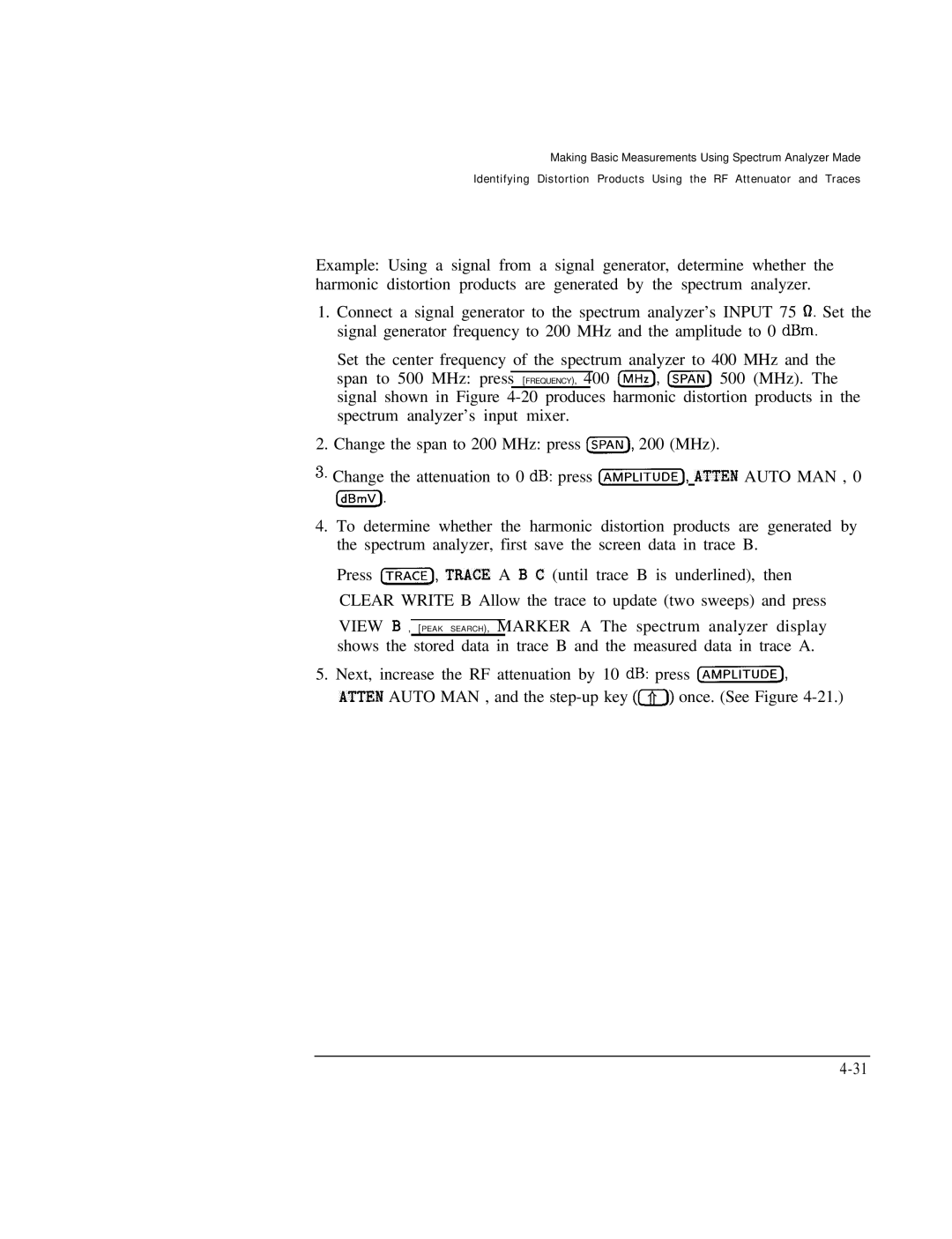
Making Basic Measurements Using Spectrum Analyzer Made
Identifying Distortion Products Using the RF Attenuator and Traces
Example: Using a signal from a signal generator, determine whether the harmonic distortion products are generated by the spectrum analyzer.
1.Connect a signal generator to the spectrum analyzer’s INPUT 75 0. Set the signal generator frequency to 200 MHz and the amplitude to 0 dBm.
Set the center frequency of the spectrum analyzer to 400 MHz and the span to 500 MHz: press [FREQUENCY), 400 IIVIHz), ISPAN) 500 (MHz). The signal shown in Figure
2.Change the span to 200 MHz: press ISPAN), 200 (MHz).
3.Change the attenuation to 0 dB: press
4.To determine whether the harmonic distortion products are generated by the spectrum analyzer, first save the screen data in trace B.
Press Cm), TRACE A 3 C (until trace B is underlined), then CLEAR WRITE B Allow the trace to update (two sweeps) and press
VIEW B , [PEAK SEARCH), MARKER A The spectrum analyzer display shows the stored data in trace B and the measured data in trace A.
5. Next, increase the RF attenuation by 10 dB: press
